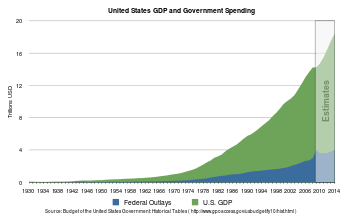
There’s a word that sets my teeth on edge, bubbling up among the commentariat every other year as election campaigns heat up. In this cycle I’m starting to hear it earlier than usual, mainly because prominent candidates — first Donald Trump, now Jim Webb — are rumored to be considering independent bids for the presidency.
Since the word is out there early, signifying a bad idea, I’m coming out early to combat that bad idea.
The word I’m referring to is “spoiler.”
You’ve heard the arguments, I’m sure: If everyone in Florida who voted for Ralph Nader in 2000 had voted for Al Gore instead, we wouldn’t have ended up with George W. Bush (as a side note, if everyone who had voted for Harry Browne in 2000 in New Mexico had voted for Dubya instead, Florida wouldn’t have mattered).
“A vote for the Libertarian is a vote for the Democrat.” “A vote for the Green is a vote for the Republican.” “A vote for anyone but the candidate I support is a vote for the candidate I fear.”
Horseapples.
First of all, let’s get one thing straight: Your vote is yours and yours alone. It doesn’t belong to a candidate until you cast it for that candidate, and you don’t owe it to any candidate until he or she has — in your opinion and your opinion only — EARNED it. You have no obligation whatsoever to vote for someone else’s hypothetical “lesser evil” instead of for your own carefully considered greater good.
Secondly, the “spoiler” phenomenon is largely a myth. As a partisan Libertarian, I often hear the claim that people who vote Libertarian would instead vote Republican if they didn’t have a Libertarian option. That’s sometimes true, but decades of exit polling says that Libertarians “take votes from” Democrats in about the same ratio as “from” Republicans on average, and sometimes more so (for example, in the 2013 election for governor of Virginia, Libertarian Robert Sarvis’s voters said, by a two to one margin, that their second choice was Democrat Terry McAuliffe, not Republican Ken Cuccinelli).
Finally, even if “spoiling” is a real phenomenon, so what? If the candidate who wanted your vote didn’t get it, maybe that candidate should have worked harder to deserve it. If there’s any chance to bring one or both of the major parties around to the views of third party voters, that chance is represented by the “spoiler” factor: “What do we have to do to get back that 3% we lost by last time?”
As you watch the 2016 campaigns unfold, keep these three things in mind. Vote your own priorities and let the chips fall where they may.
Thomas L. Knapp is director and senior news analyst at the William Lloyd Garrison Center for Libertarian Advocacy Journalism (thegarrisoncenter.org). He lives and works in north central Florida.
PUBLICATION/CITATION HISTORY
- “Who owns your vote?” by Thomas L. Knapp, Citizen of Laconia [New Hampshire], 10/22/15
- “Spoiled Rotten: Who Owns Your Vote?” by Thomas L. Knapp, OpEdNews, 10/22/15
- “Spoiled Rotten: Who Owns Your Vote?” by Thomas L. Knapp, Ventura County, California Citizens Journal, 10/22/15
- “Spoiled Rotten: Who Owns Your Vote?” by Thomas L. Knapp, CounterPunch, 10/23/15
- “Spoiled rotten: Who owns your vote?” by Thomas L. Knapp, Muscatine, Iowa Journal, 10/23/15
- “Spoiled rotten: Who owns your vote?” by Thomas L. Knapp, Davenport, Iowa Quad-City Times, 10/23/15
- “Spoiled rotten: Who owns your vote?” by Thomas L. Knapp, Sonoran News [Arizona], 10/28/15


